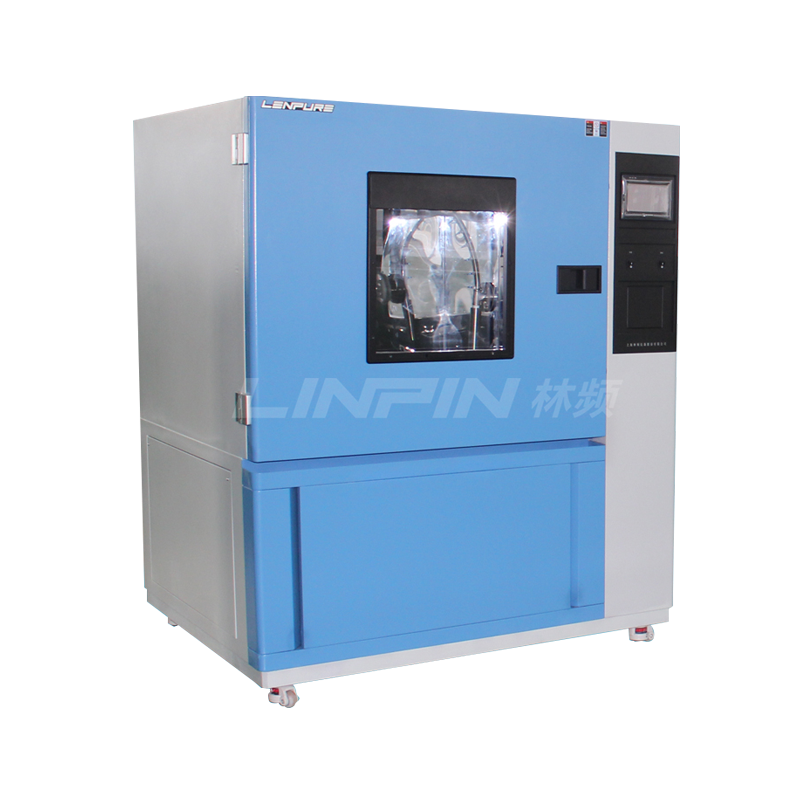In an era of vigorous development of artificial intelligence technology, intelligent control has become an indispensable component of rain test chambers. This technological innovation not only significantly reduces labor costs but also plays a pivotal role in improving equipment operating efficiency. By means of sophisticated algorithms and advanced sensor technology, intelligent control systems achieve precise regulation of the internal environment of test chambers, ensuring the stability and reliability of the testing process.

Core Workflow of Intelligent Control Systems
Modern rain-test-chamber intelligent control systems adopt a modular design whose essence lies in the ability to automatically coordinate the operating states of multiple subsystems such as heating and refrigeration. By monitoring temperature changes in real time, the system intelligently adjusts the working parameters of each subsystem to guarantee high-precision control across the entire temperature range. This dynamic balancing mechanism not only raises the energy-efficiency ratio of the equipment but also markedly lowers overall power consumption.
The system is equipped with comprehensive detection devices capable of monitoring equipment status continuously. As soon as an abnormality is detected, an alarm mechanism is triggered immediately. The controller’s intelligent-diagnosis function displays fault information in a clear Chinese interface and simultaneously saves historical fault records and data trend charts, providing maintenance personnel with a complete basis for fault analysis.
Advanced Human–Machine Interface
The control system of the rain test chamber employs a dual-loop temperature-control architecture that integrates a programmable logic controller (PLC) and a high-resolution LCD color touch screen. This design not only offers an intuitive operating interface but also supports the setting and execution of complex test programs. Users can easily configure test parameters, monitor running curves, and view key information such as heater status and elapsed time via the touch screen.
The system supports conversational programming; an operator needs only to set the target temperature, and the system automatically optimizes the operating strategy of the refrigeration unit. This intelligent design greatly reduces operating difficulty and improves test efficiency.
Data Management and Remote-Control Functions
Modern intelligent systems are provided with complete communication interfaces that support connection to computer-aided control systems. Through dedicated communication protocols users can:
-
transmit and store test data in real time
-
monitor equipment status remotely
-
perform trend analysis of historical data and generate reports
-
achieve centralized management of multiple networked devices
The accompanying data-logging system can save all key parameters during the test process, offering reliable data support for subsequent quality traceability and process optimization.
Comprehensive Benefits Brought by Intelligence
The application of intelligent control systems has produced notable improvements in several areas for rain test chambers:
-
Operating efficiency: automation reduces manual intervention, shortening test cycles by more than 30 %
-
Test accuracy: temperature-control precision reaches ±0.1 °C, meeting stringent test standards
-
Energy savings: intelligent adjustment algorithms cut energy consumption by 20–25 %
-
Easier maintenance: predictive-maintenance functions reduce unexpected downtime
-
Simplified operation: an intuitive interface design halves training time
Industry Trends and Purchase Recommendations
With the deepening penetration of the smart-manufacturing concept, users are placing higher demands on the intelligence level of test equipment. When purchasing a rain test chamber, the following intelligent functions deserve priority attention:
-
Adaptive control algorithms: whether the system can automatically optimize operating parameters according to test requirements
-
Fault-prediction capability: whether big-data-based fault early-warning functions are available
-
Remote-diagnosis support: whether the manufacturer can provide remote technical-assistance services
-
System expandability: whether the control architecture supports future function upgrades
-
Data-security protection: whether complete data-backup and encryption mechanisms exist
Intelligent control technology has become an inevitable trend in the development of rain test chambers. It not only raises the automation level of equipment but also plays an irreplaceable role in guaranteeing test accuracy and lowering operating costs. With the continuous advancement of artificial intelligence and Internet-of-Things technologies, future rain test chambers will become even smarter, more efficient, and more reliable, offering stronger technical assurance for product-quality inspection. Enterprises should fully recognize the importance of intelligent control and take it as a key factor in equipment selection and upgrading so as to maintain a competitive edge in the new round of industrial transformation.


